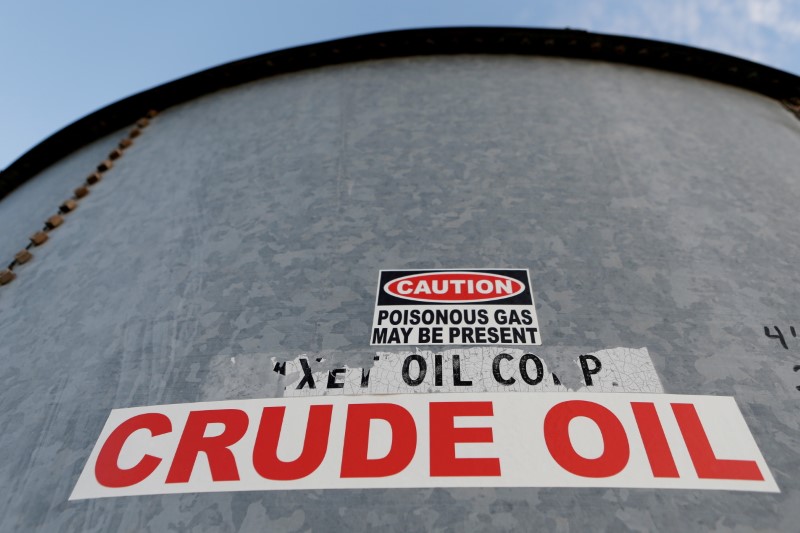By Jessica Resnick-Ault
NEW YORK (Reuters) -Oil prices rose over $2 a barrel on Wednesday after government data showed a larger-than-expected drawdown in U.S. crude inventories, and on expectations demand will rise as vaccination roll-outs widen.
U.S. crude oil stockpiles fell last week to the lowest since September 2019, the U.S. Energy Information Administration said, extending their drawdown after Hurricane Ida late August shut numerous refineries and offshore drilling production. [EIA/S]
Brent crude rose $1.86, or 2.5%, to settle at $75.46 a barrel. U.S. West Texas Intermediate (WTI) crude climbed $2.15, or 3.1%, to $72.61 a barrel.
Earlier in the session, Brent touched $76.13 a barrel, a contract high, and the highest outright price since late July.
"Brent and WTI pricing are up strongly today, back near the peaks we hit earlier in the summer," said Pavel Molchanov, an analyst at Raymond James. "Oil momentum has continued ever since late August following Hurricane Ida as the Gulf of Mexico still struggles to fully restore production."
U.S. crude and distillate inventories last week fell more than analysts expected, while gasoline stocks also declined, but fell slightly short of analysts' expectations.
Crude inventories fell by 6.4 million barrels in the week to Sept. 10 to 417.4 million barrels, compared with analysts' expectations in a Reuters poll for a 3.5 million-barrel drop. [EIA/S]
"We have seen large crude and product draws which is supportive to the energy complex," said Tony Headrick, energy market analyst at CHS Hedging. "The tropical storm that just came through slowed down recovery efforts from Hurricane Ida and we will continue to see the effects from Ida for the next few reports."
Tropical Storm Nicholas moved slowly through the Gulf Coast on Tuesday, leaving hundreds of thousands of homes and businesses without power, although Texas refineries ran normally.
Damage from the storm comes two weeks after Ida knocked a significant amount of Gulf Coast refining capacity offline.
"This year’s hurricane season has a much greater and longer-lasting impact on the global oil balance than in previous years," said Tamas Varga, oil analyst at London brokerage PVM Oil Associates.

Oil prices also found support from the International Energy Agency (IEA), which said on Tuesday vaccine roll-outs would power a rebound, after a three-month slide in global oil demand due to the spread of the Delta coronavirus variant and renewed pandemic restrictions.
But oil price gains were capped by a fall in China's crude throughput in August, with daily refinery runs hitting the lowest since May 2020 and overall factory output faltering.